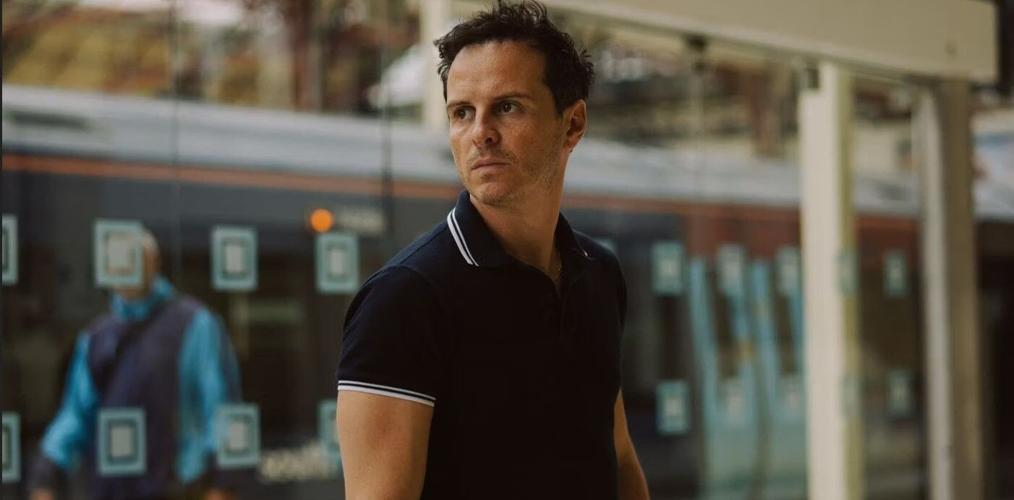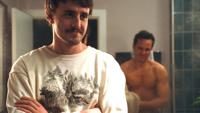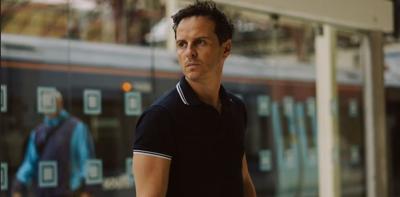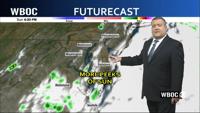This is the fifth feature from British filmmaker, Andrew Haigh. The film that put him on the map was his second feature, Weekend (2011), which was critically acclaimed and was even added to the Criterion Collection. His third feature, 45 Years (2015) received an Oscar nomination, but it never seemed to pierce the cultural consciousness beyond that. His fourth feature, Lean on Pete (2017) seemed to come and go without much of an impact or an even lesser one than his previous. As a result, it feels as though he's going back to the well of where he got the most notice.
Haigh is adapting the 1987 novel by Japanese writer, Taichi Yamada. However, the way Haigh constructs the narrative, it's very similar to Weekend. That 2011 independent production focused on two, White, gay men who spend most of their time together in the high-rise apartment or London flat of the protagonist. This film has an added, supernatural element, but it's essentially the same thing. Weekend had a bittersweet ending, as well as a bittersweet tone and theme about what it's like to be gay. Even though Yamada's book didn't have a homosexual protagonist, Haigh was able to graft that same bittersweet theme, which might be even more tragic here.

Andrew Scott (Fleabag and Spectre) stars as Adam, a screenwriter who lives in a high-rise apartment building. It's a fairly new building and seemingly a wealthy one. He lives on one of the top floors and he lives there alone. He doesn't have a boyfriend and he doesn't seem to have friends with whom he regularly socializes. It's not clear if this is due to him being immersed in his work or other reasons. He later says his friends moved away, but he doesn't seem to be on the phone much with them or going out much to meet new people.
The opening shot is the image of Adam translucent against the city landscape. It is perhaps the reflection of him in the window glass of his apartment. It could emphasize his loneliness and isolation. It also could be a ghost image, the apparition of his spirit. It portends what the supernatural element will be. There are other ways that Haigh portends what that element is, not only specific shots but also visual effects such as disappearances and blurring of figures. Haigh isn't necessarily religious nor is he commenting on the afterlife per se. The ghost characters are ghosts here more as a gimmick in order for Haigh to reckon with the past, much in the way that time travel is a gimmick in Back to the Future (1985).

Paul Mescal (Aftersun and Normal People) co-stars as Harry, a younger, queer man who lives several flights down in the same building as Adam. It's not sure what Harry does for work. He also says he doesn't have any friends or others in his immediate social circle. He has family. He has his parents, but he talks about not going home much. Since he came out as gay, he's felt more like a stranger in his family to some degree. As a result, it becomes clear that he's lonely, if not desperately so. Yet, he has a charm or sense of humor that masks a lot of it. Adam's loneliness and sadness consumes a lot of their relationship, but Harry's loneliness subtly creeps in as well.
The origins of Harry's loneliness is never fully explored. The implication is that being gay in some way or another lends to loneliness or perhaps isolation. This comes through more clearly in Adam's conversations with his parents. This is where the supernatural element also enters. If one isn't familiar with the novel or the premise, Adam's conversations with his parents could come as a surprise. The premise isn't necessarily a twist or meant to be a shock. Yet, if one knows nothing about it, a shock could be forthcoming.

Claire Foy (The Crown and The Girl in the Spider's Web) also co-stars as Adam's mother and Jamie Bell (Rocketman and Billy Elliot) rounds out the cast as Adam's father. Andrew Scott, as an actor, is in his late 40's, but Foy and Bell are actors in their late 30's. Scott is older by a decade than the actors playing his parents. Foy and Bell are not in hair and makeup to have them appear older. If anything, they come across as people who are even younger. If one hasn't guessed after the first, few scenes, the reason for the age difference is because Foy and Bell are playing ghosts.
It's funny because if one didn't know this premise, one might assume that in the first scene in which Adam sees his dad, that Adam is cruising his own father. Harry sees a picture of Adam's father and points out he's handsome, so one could misconstrue something sexual between Adam and his father in that particular scene but only briefly. It quickly unfurls that Adam is grieving and his conversations with what are his parents' ghosts are a way to deal with the grief and talk to them in a manner he couldn't when they were alive, not simply due to homophobia but also due to their deaths robbing him of that chance.

The performances from all four actors are superb. It's nothing more than a series of conversations. All of which are well written. There's a beauty to all of them. However, the premise does reach a limit. That limit isn't explained and it feels like it's an arbitrary limit, simply because the film needs to end. There is a twist, which one could guess half-way through it, but even if one didn't guess it, the twist unfolds as a lame or yet another take on The Sixth Sense (1999) ending. It closes the film on an unneeded downer because that 1999 film's ending was about moving on, where here it seems more about underlining Adam's flaws in a way that felt like literal overkill. Otherwise, another interpretation is that it's not ghosts that Adam is seeing but instead Adam is hallucinating and we're just seeing images from his grieving, fractured mind.
Rated R for sexual content, language and some drug use.
Running Time: 1 hr. and 45 mins.
In select theaters.













